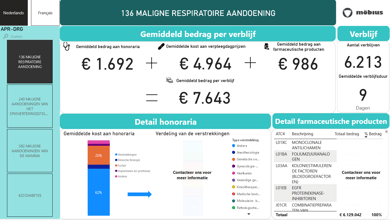Managing your supply chain is a complex and intricate task. Even without disruptions, there are countless factors to monitor and optimise. Artificial intelligence (AI) has revolutionised multiple industries, including supply chain management. With the recent hype around Agentic AI, it is often presented as the “holy grail” to tackle challenges. But what exactly is it, and how can it help you to optimise your key supply chain processes?
What is agentic AI?
Agentic AI refers to AI systems that exhibit autonomous decision-making capabilities and can perform tasks based on dynamic environmental inputs. Unlike traditional AI models that rely on predefined rules and human supervision, agentic AI systems operate through three core mechanisms: perception (collecting and interpreting real-time data), decision-making (analysing data to generate optimised solutions) and action (autonomously implementing decisions). They are equipped with self-learning capabilities, allowing them to refine their decision-making processes over time. The key features of agentic AI are:
-
Autonomy – works independently without continuous human intervention
-
Self-learning – improves decision-making through reinforcement learning and pattern recognition
-
Interactivity – collaborates with other AI systems and human operators to improve efficiency
-
Context awareness – recognises and processes environmental factors for optimised performance
-
Multi-agent – can work together with other AI agents to attain complex objectives

The added value of agentic AI in supply chain management
Supply chain management is crucial for maintaining efficient operations and financial stability. There are several processes that, if managed correctly, enhance the flow by streamlining supply chain operations and maximising output, ultimately improving customer service and growing net profit. Let’s have a look at five key supply chain processes.
1. Planning
Everything starts with a plan. Planning focuses on matching supply to customer demand and predicting future needs. Agentic AI can help you by:
-
Enhanced demand forecasting – AI agents can continuously source and analyse real-time data from various sources (order management systems, social media, market trends,…) and integrate it into your forecast models for more accurate and timely predictions.
-
Feasibility analysis of orders – AI agents can evaluate the feasibility of orders based on available materials, personnel and other data. This leads to informed decisions on order acceptance, ultimately resulting in balanced and predictable production planning and material requirements.
-
Strategic planning and scenario analysis – simulate different logistics scenarios and perform what-if analysis to assess the impact of variables such as changing demand or disruptions. This supports strategic planning and risk management.
2. Sourcing
Find and select suppliers. Agentic AI can help manage challenges such as supplier evaluation, contract negotiation and matching procurement to inventory management. Agentic AI can help you by:
-
Autonomous supplier evaluation and selection – AI agents can autonomously evaluate suppliers and make purchasing decisions based on criteria such as cost, quality and lead times or any other criteria that are relevant to your organisation.
-
Align procurement and inventory management – agentic AI can integrate with ERP systems to align procurement with current inventory levels. While it is already possible to automatically place orders when inventory reaches a threshold level, AI agents can check for availability with your supplier and, if needed, automatically source from another one, i.e., suggest alternative procurement to maintain service levels.
-
Enhance collaboration with suppliers – as a collaborative agent, agentic AI can facilitate communication and data sharing between companies and suppliers.
3. Manufacturing
From raw materials to finished goods. Converting your raw materials into finished goods includes challenges like monitoring production, optimising workflows and reducing downtime. Agentic AI can help you by:
-
Real-time production monitoring and optimisation – monitor production lines and optimise workflow planning through real-time analytics. Adjust your throughput based on the availability of workforce or machine capacity at all times.
-
Automated order acceptance and planning – As mentioned earlier, an AI agent can evaluate orders for feasibility, resulting in balanced and predictable production planning.
-
Predictive maintenance – Agentic AI can use data from IoT sensors and equipment logs to identify potential problems before they escalate, and streamline automated repair planning and parts procurement, minimising downtime.
4. Delivery
From warehouse to consumption. Excellent delivery includes transportation, distribution and ensuring products arrive on time and in good condition. Critical to manage is route optimisation, transport monitoring and disruption management. Agentic AI can help by:
-
Real-time transport monitoring and route optimisation – Agentic AI-driven systems can monitor transport conditions in real time, automate scheduling and suggest route changes. This minimises fuel consumption, delivery delays and transport costs, improves delivery performance and reduces emissions.
-
Disruption management – In case of disruptions, agentic AI can identify alternative suppliers or reroute shipments to avoid delays. It enables automated cross-channel interactions to address issues collaboratively.
-
Enhanced communication and visibility – agentic AI can improve communication between drivers, dispatchers and customers for faster delivery troubleshooting. Automatically notify your dispatchers and customers when a driver is stuck in traffic and let the AI agent reserve a new delivery slot instantly.
5. Returns
Learn from returns. Returns affect your resource allocation, mostly at inconvenient times. However, they also provide the opportunity to identify root causes of defects or delivery problems. Agentic AI can help by:
-
Identify root causes – by analysing real-time and historical data such as returns data, quality controls and transportation, agentic AI can identify patterns in your returns. It guides you to the root cause without a time-intensive investigation by yourself. This way, problems are taken care of instantly.
-
Suggestions for corrective action – based on the identified causes, AI agents can recommend corrective actions upstream in the supply chain to minimise future returns, e.g., adjustments in production, packaging instructions or carrier selection.
-
Learning from return data for continuous improvement – through self-learning capabilities and reinforcement learning, agentic AI can continuously learn from return data to refine its decision-making models and become more proactive in preventing the causes of returns.
Conclusion
Agentic AI is reshaping supply chain management by bringing autonomous decision-making, self-learning capabilities and real-time adaptability to operations. Embracing it will not only streamline your processes but also build a more adaptive and intelligent supply chain for the future. From planning and procurement to production, delivery and returns management, agentic AI is paving the way for a more efficient, cost-effective and resilient supply chain.







